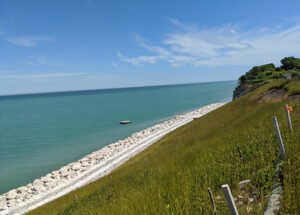Yesterday’s post discussed “burn rate” and the CFO’s unwillingness to disclose how much the College is spending each month. My point was that when Trustees ask direct questions, they deserve direct answers. The question was simple – “What is our burn rate and when do we start to panic?” The CFO’s answer meandered; he discussed revenue rather than expenses. But it also raised another interesting issue.
Following the Trustee’s question, Bill Johnson discussed WCC’s summer prospects, assuming WCC closed the campus for the summer.
“If you were to assume that our ML Building was closed through the summer, the most significant impacts of that would be related to our trades training programs – Ironworkers, Masons, uh, UA, and that’s not significant net revenue to the College, but of course has a significant impact on our trade partners and the surrounding greater Ann Arbor area.”
These training programs consume the College during the months of July and August. They conclude about one week prior to the beginning of the Fall semester. WCC shortens the Spring/Summer semester to accommodate them. This shortened semester sometimes puts students under extreme pressure to complete a 15-week course in a compressed format.
The UA instructor training program requires the IT staff to literally turn the College upside down – removing all of the College’s software from all of its classrooms – then restore the classrooms and labs in the days before the Fall semester. In many cases, the College must remove and store specialized classroom equipment – like welders and automobile lifts – and then return them to the classrooms in a matter of days.
That’s not significant net revenue to the College
If that’s not true of the largest of these programs – the UA – then why is WCC pursuing more (and smaller, less lucrative) instructor training programs?
Johnson acknowledges that the programs have a positive local economic impact.
But.
WCC’s primary responsibility is educating county residents, not generating cash for local businesses.
When does someone start asking questions about how much these programs actually cost, and their impact on the College? Does compressing the Spring/Summer semester negatively impact the students – the ones for whom WCC was built? How much educational funding is being diverted to subsidize these programs instead of paying for the educational programs the taxpayers authorized? Does WCC “need” additional revenue to continue subsidizing these programs? And if the return to the College is minimal, would the money be better spent serving Washtenaw County residents – as intended?
Right now, WCC does not keep detailed track of how much it costs to produce these events. Without the cost data, it is impossible to say that the events produce any revenue at all. It also sounds like the CFO would be comfortable not collecting the revenue from these events this year.
That statement flies in the face of the Administration’s insistence that WCC needs additional revenue sources. If additional revenue is necessary, its loss should be devastating. Instead, the CFO says first that these programs don’t make much money to begin with, and second, its loss will have minimal impact on the General Fund.
This wandering “answer” only raises more questions. Why is WCC pursuing additional instructor training programs when they don’t make much money? What do these programs cost to produce? If their loss would be “insignificant” and to deliver them, the College must shorten the Spring/Summer semester, then why do them at all?
Photo Credit: Marco Verch , via Flickr









